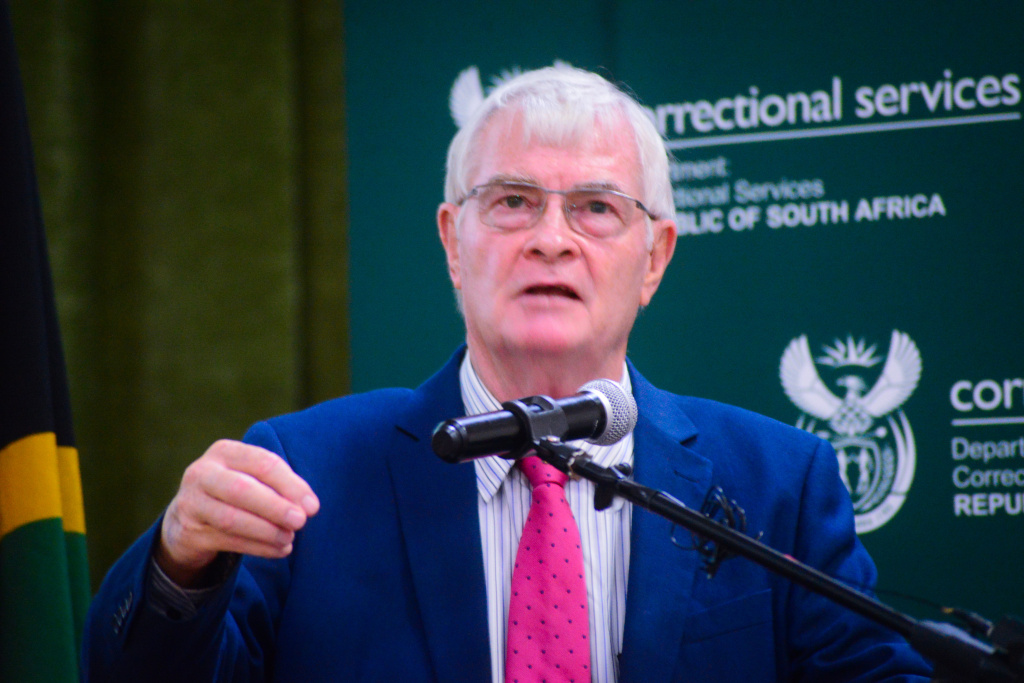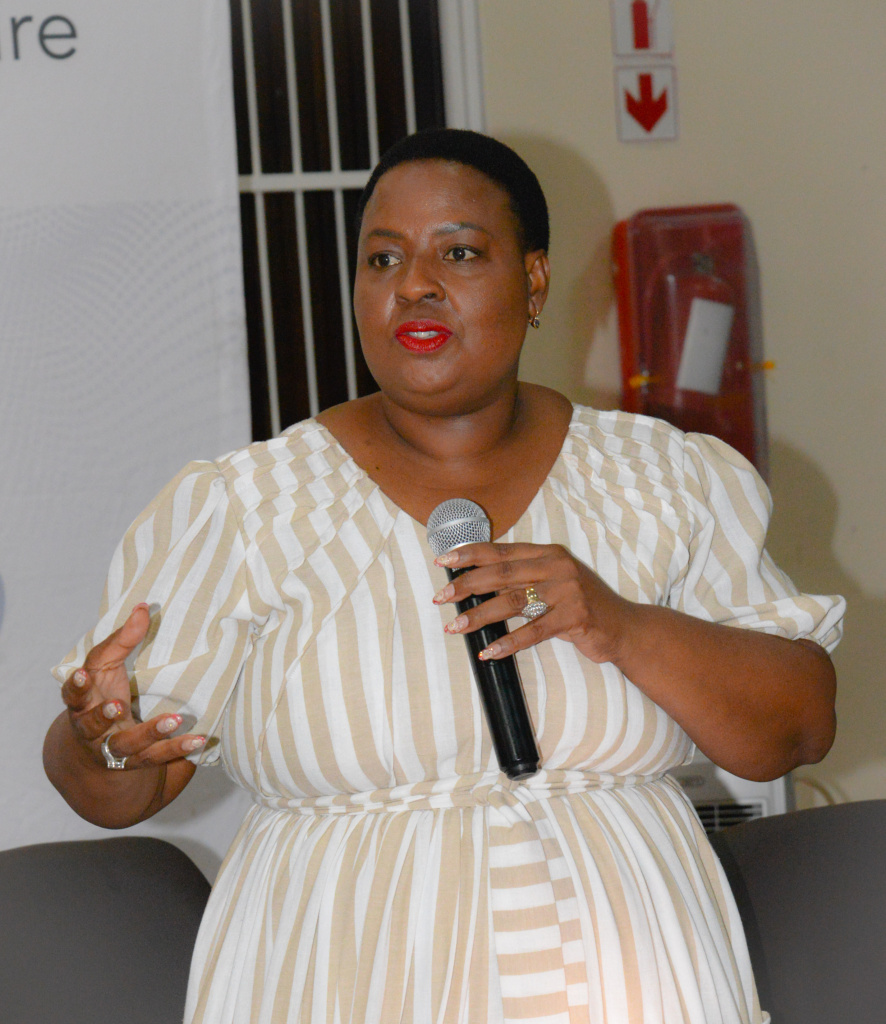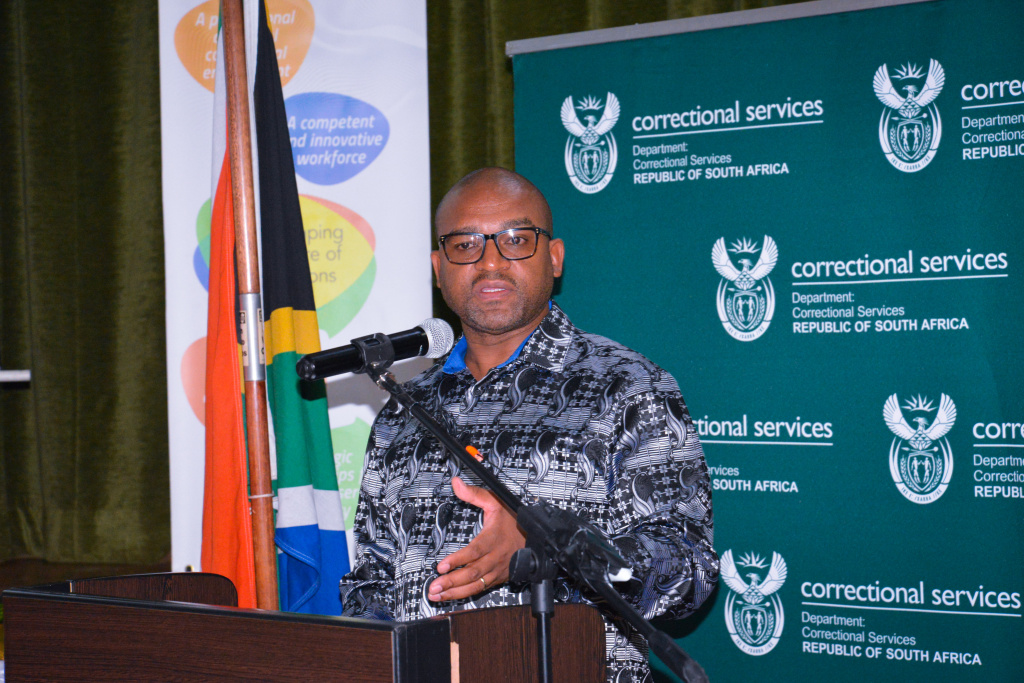
The Department of Correctional Services (DCS) is hosting its annual Strategic Planning Session from 25 until 27 November 2024, at Leeuwkop Management Area, Gauteng Region. This three-day session aims to chart the department’s five-year strategic outlook, focusing on shaping the future of corrections and enhancing plans to achieve its mandate. The hybrid session is attended by the Minister of Correctional Services, Dr Pieter Groenewald, and his Deputy Minister, Ms Lindiwe Ntshalintshali, National Commissioner, Mr Makgothi Thobakgale and all senior management of the department.
In his opening remarks, National Commissioner Thobakgale highlighted the Department‘s progress over the past five years, marked by unwavering commitment, resilience, and a determination by officials to realize the department’s vision and mission. Despite challenges, the DCS has shown improved performance, with consecutive years of unqualified audit reports and reduced findings.

Delivering his keynote address, Minister Groenewald called upon the executive members of the department to be specific when producing strategies to eradicate challenges that hinders progress on achieving its mandate to create a safer South Africa. He also stressed that prioritizing officials’ welfare is crucial, as it directly impacts the department’s performance.
“Motivated officials are essential towards achieving 100% performance and a clean audit report. Let us ensure that we uplift the morale of officials by providing them with basic resources to enable them to execute their tasks with pride,” said Minister Groenewald.
He also acknowledged challenges, such as notch increases for qualifying officials and mentioned that there are ongoing engagements with the National Treasury, following budget cuts that the department has incurred.
Minister Groenewald also outlined five key priorities that the session should objectively reflect on, by identifying challenges and solutions to bring change and developing and improving operations in the department. These include:

1. Overcrowding: Tackle the pressing issue of overcrowding in correctional facilities, particularly in remand detention facilities;
2. Maintenance of facilities: Have clear action plans on how the department can maintain its facilities utilizing offender labour, while working closely with the Department of Public Works and Infrastructure;
3. Self-Sufficiency and Sustainable Strategic Framework: Develop strategies that maximize food production within correctional facilities. The goal is for all facilities to be self-sufficient in food production, thus reducing reliance on external suppliers and subsequently saving on expenses;
4. Rehabilitation: Conduct a comprehensive evaluation of inmates’ rehabilitation programmes. The goal is to assess the effectiveness of these programmes in changing offenders’ behaviour and reducing reoffending rates; and
5. Parole system: Develop effective strategies for administering the parole system, focusing on restructuring the parole system, enhancing the selection process for competent parole board members to ensure transparency and accountability in parole decisions.
The three-day planning session will also receive a report on Integrated Quantitative and Qualitative Research Insights, Mid-Term Development Plant and a presentation on Strategic Risks for the five-year period amongst others.
